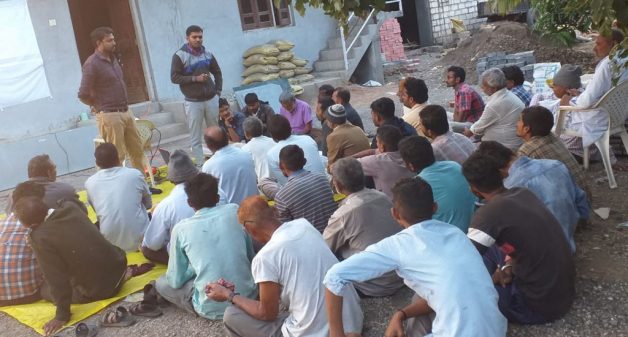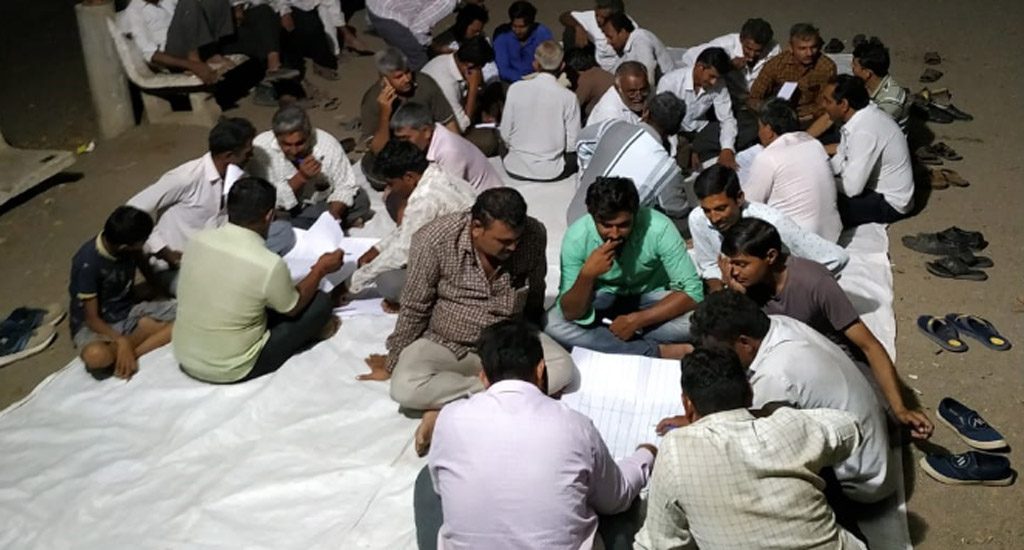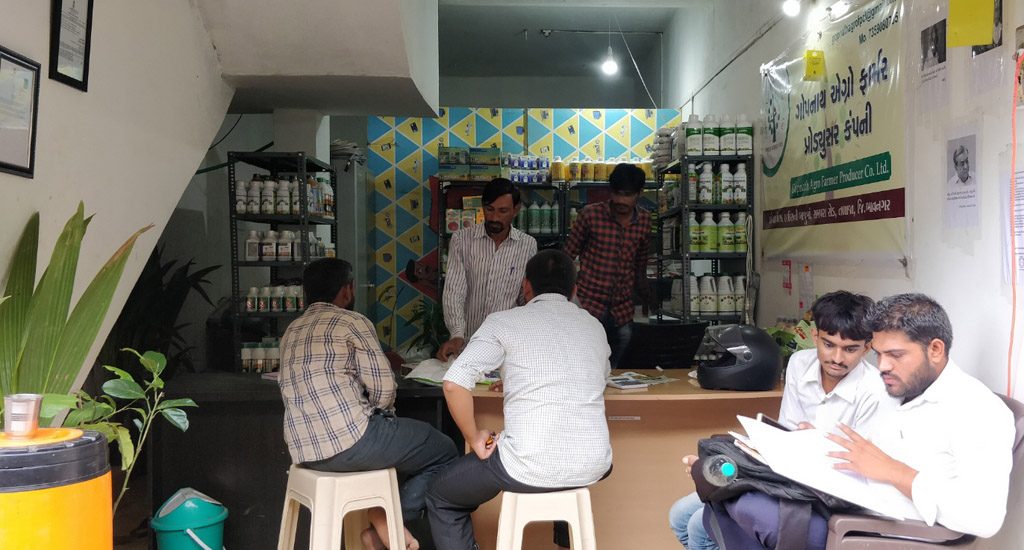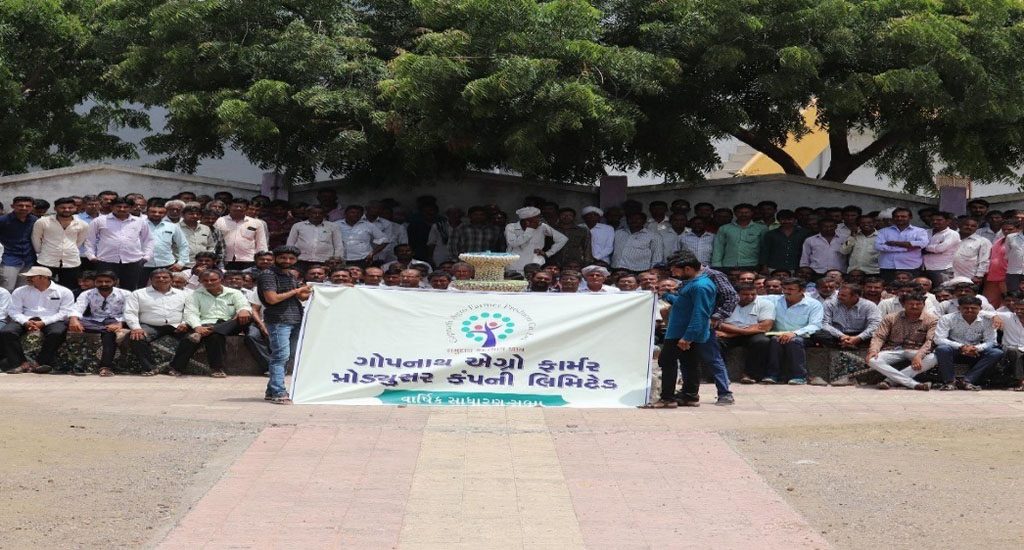
Identifying farmers’ needs helps producer company find footing
When members’ ownership, exchange of ideas and process-driven systems take precedence over turnover and profitability, farmer producer companies will become self-reliant and succeed

When members’ ownership, exchange of ideas and process-driven systems take precedence over turnover and profitability, farmer producer companies will become self-reliant and succeed
Amidst the current agrarian distress coupled with the huge exodus of migrants back to rural areas due to the pandemic-induced lockdown, farmer producer companies (FPCs) have again come under the radar of the government as well as policy experts.
Making a bold move, the government recently decided to amend the Essential Commodities Act (ECA). The amendments to ECA would allow farmers to sell cereals, oilseeds, edible oil, pulses, onions and potato to any buyer outside the Agriculture Produce Market Committees (APMC), that are established by the state governments to help farmers sell their produce.
This is indeed a watershed moment in the history of agriculture marketing in India. The government views FPCs as critical farmers’ institutions to leverage on the recent agriculture deregulations that allow farmers to sell the aforementioned produce outside the APMC-regulated wholesale mandis.
However, experts are skeptical about the expected business potential through FPCs, as most of the FPCs suffer poor financial health. Working capital deficits for trade is a huge challenge that FPCs face currently. As agricultural commodities have huge volumes with low margins, agriculture marketing operations need significant working capital.
Working capital
Like any other public limited company, farmer producer companies are expected to manage their business with the help of equity and loans. However, FPCs find it difficult to avail loans from financial institutions before completing three years of operation.
In the last few years, National Bank for Agriculture and Rural Development (NABARD) has been very aggressive in promoting new FPCs, offering financial support for the first three years. But this mostly includes office expenses and salary of the chief executive employed.

The financial support for the salary of a CEO employed by an FPC that is expected to make a turnover in millions, is as low as Rs 10,000. Therefore, FPCs face difficulties in employing quality professionals to run the business. NGOs on the other hand find it difficult to support FPCs with seed capital due to statutory provisions or their own bylaws.
Alternate view
As a result of my close engagement with an FPC at Talaja in Bhavnagar district, I view FPCs beyond turnover and profitability. Gopnath Agro Farmer Producer Company Limited, which is about to complete one year of operations, helps me develop insights that can give some hopes for organizing, ideating and developing ownership among farmers.
The FPC with 500 members is currently making its mark with bio-inputs in an area dominated mainly by cash crops. Cotton and groundnut, the cash crops grown here, are marred by excessive use of chemical inputs. With uncertainties in price of produce, cutting down on cost of cultivation through reduction in inputs can significantly increase disposable income of farmers.
Use of bio inputs is not just cost effective, but also makes agriculture more sustainable. These inputs may not have huge margins but a collective entering this segment can reap the benefits of economies of scale. Thus, a transformation appears in retail input markets predominantly captured by dealers offering heavy credit flowing from product margins.
Institutionalization
It has been observed across the nation that massive membership drives take place after registering an FPC, without any service assurance for the members or any sense of ownership. It is true that fundamentally any company would need to maximize equity for sound financial position. But unlike other companies, FPCs have to realize benefits in the form of patronage along with dividends.
This makes efficient delivery of services focal to successful operations for FPCs. Therefore Gopnath Agro Farmer Producer Company Limited focused on organizing and institutionalizing before making its way into the market.
The genesis of Gopnath Agro Farmer Producer Company Limited lies in village level groups formed earlier to discuss sustainable practices. Through repeated discussions and discourses, these groups developed their norms like frequency of meetings, delegation of responsibilities to conduct meetings, besides entry and exit rules for group members.
Towards sustainable agriculture
After setting up norms, the groups deliberated on adoption of sustainable agriculture practices. Much before the FPC was formed, there were frequent dialogues on soil health improvement, reduction of chemical pesticides and fertilizers, efficient usage of water resources and the like.

The groups also emphasized on sanctions through peer pressure on complete ban on chemicals such as monocrotophos, a highly poisonous drug that adheres to farmers’ psyche by making the crop look greener but with no considerable impact on yield. World Health Organization (WHO) has banned the chemical.
Apart from this, farmers discussed technical know-how on making bio inputs such as vermiwash and jivamrut, made from locally available resources like earthworm, cow dung and cow urine. Local production and distribution of such inputs to farmers within the village created livelihood and entrepreneurship opportunities.
Bio-inputs
As some bio products need larger industrial production capacities, quality control and high precision, the groups realized the need for collective procurement of bio inputs. This raised the need to federate and form a producer company at block level and enter the bio-input trade channel.
Identifying farmers’ needs through village level groups gave clear vision and business proposition. Currently, Gopnath Agro Farmer Producer Company Limited deals with products that could not find local markets due to comparatively low incentives for traders, who were happy selling chemical inputs.
The FPC deals in bio-inputs like trichoderma, neem oil, beauveria, metarhizium, waste decomposer, castor cake, neem cake and tobacco-based fertilizers. The need generated from this systemic process steered the FPC to distinct positioning before entering the business.
Ownership
The FPC’s retail outlet often serves as a place for exchange of ideas. During a visit to the shop Ajubha Banubha Raijada of Chudi village told CEO Ashwin Singhad that they could look for a shop with higher visibility, to boost sales. He recommended a few spots that could attract more farmers looking for bio-inputs.

Chavda Jitendrkumar Bhurabhai of Babariyat village called and asked the agronomist supporting the FPC if the vermiwash that the farmers produce could be packaged and sold at the store. He asked whether labs could test the product for quality before they packed the same with the brand name.
Arvind Oghadbhai Kagda of Padri Gohil village called a board member and suggested a vendor who was keen to supply castor cake with a lower landing price.
Such ownership of ideas brings the real essence to the very existence of any cooperative or producer company. Some of the ideas might not be feasible, but the ownership evident from the involvement makes such institutions strong.
Self-reliance
In addition to ideas related to products cascading through the FPC, the organization can also become a center to exchange information on best practices suited to local conditions. These practices include optimal use of inputs like pesticides and fertilizers. For example, timely spraying of neem oil on cotton crop can significantly reduce cost incurred on chemical pesticides.
The FPCs therefore are much more than registered entities under Companies Act, envisaged to maximize profits of shareholders. They can also be viewed as collective institutions to boost individual capacities through exchange of information.
Such people’s institutions might find it difficult to get grants, loans and break monopolistic supply chains, but they can always exchange ideas. Display of ownership by members, control, process-driven systems and ideas suited to the local context will help FPCs tackle agency problem and make them perpetually atmanirbhar or self-reliant.
Dhruv Joshi is a rural development practitioner working with Coastal Salinity Prevention Cell (CSPC),Gujarat. Earlier he served in Gujarat Cooperative Milk Marketing Federation. He is an alumnus of Institute of Rural Management Anand. Views are personal.